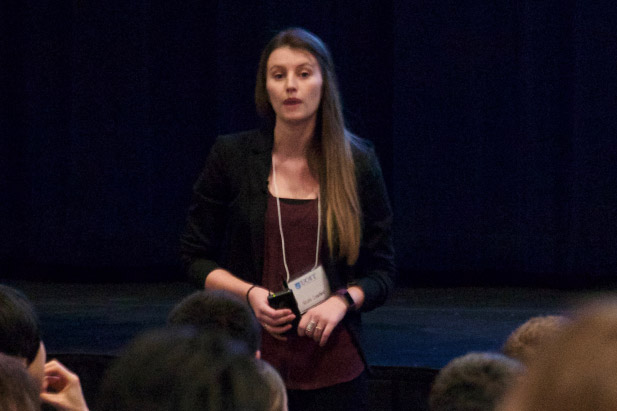Forensic Science Research Day puts student research in the spotlight
Capstone projects prepare students for their future careers
June 28, 2017

From the challenges of underwater crime scenes to the recovery of DNA from nitrile gloves, graduating students of the University of Ontario Institute of Technology’s Forensic Science program had many discoveries to share this spring. Each April, fourth-year students culminate their program by showcasing specific research findings from their ‘Capstone’ projects for industry experts during Forensic Science Research Day.
“These Capstone projects provide students with vital experiential learning to prepare them for their future careers,” says Kimberly Nugent, Senior Lecturer and Capstone Co-ordinator, Faculty of Science. “This event is a great way to celebrate our graduating class.”
The event at the university’s Regent Theatre was broken into three sessions:
- Directed studies: Students attempt to identify gaps in current forensic science research. Projects included The Implications of DNA Evidence in Wrongful Convictions.
- Mock crime-scene practicum: Students apply practical skills, from collecting and identifying evidence, to displaying their findings as testimony in a mock court of law.
- Thesis projects: Students design their own experiments and contribute their findings to a relevant field of forensic science. Projects included Direct and Indirect DNA Transfer in a Mock Crime Scenario and The Creation of a Searchable Electronic Natural and Synthetic Fibre Database.
All presenters summarized their findings before answering questions from the audience. Some attendees were mentors who helped the students throughout the course of their work. Also present was Monica Sloan, one of Ontario’s longest-serving forensic biologists. The 2016-2017 President of the Canadian Society of Forensic Science also delivered the keynote address at the event.



